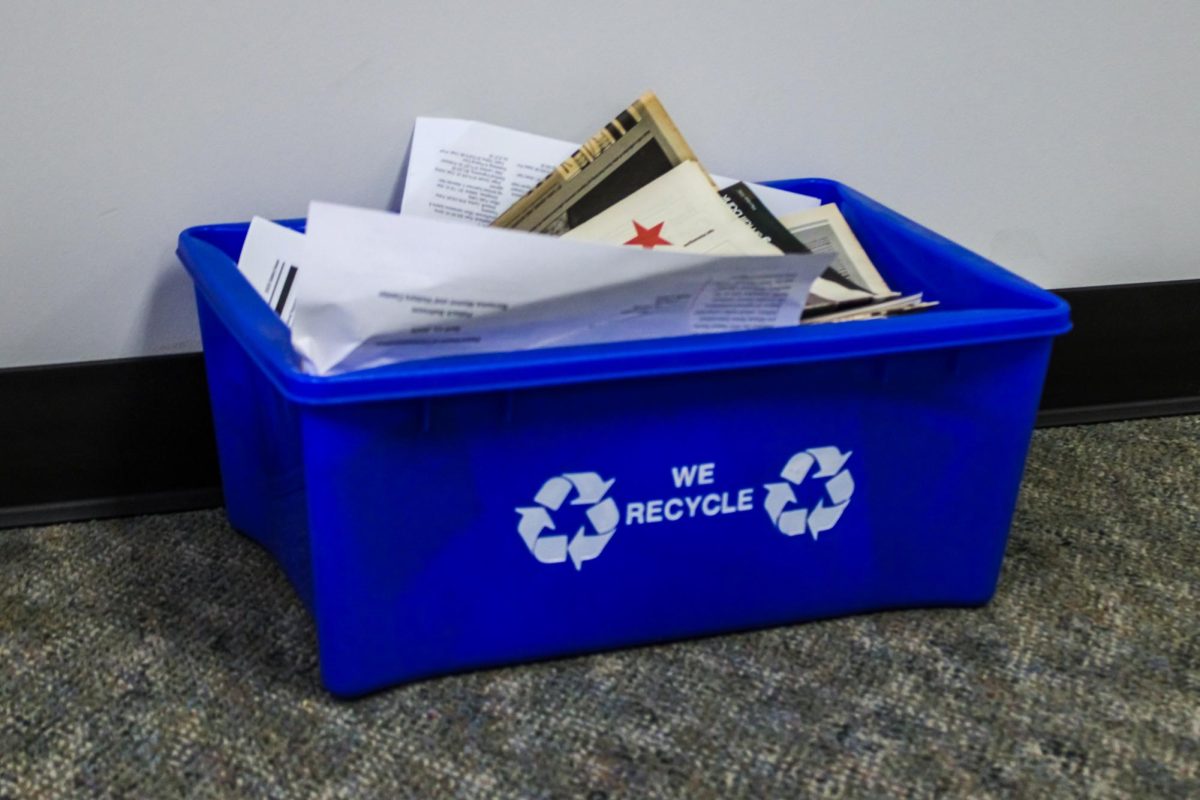Every effort to recycle matters, but not all matter belongs in the blue bin.
Next time you go to recycle – or throw something away – stop for a second and consider the repercussions. If you aren’t sure what those may be, there’s lots of resources available to help you solve the mystery.
Here on campus, there are large dumpster-style recycling bins, often located outside resident halls, and smaller blue recycling bins inside buildings across campus. These bins are clearly labeled for the materials that can and can’t be disposed of in them – and generally – each bin is conveniently located near a trash or non-recyclable waste disposal bin, often black or dark grey in color.
The easiest recyclable materials to recognize are cardboard and paper materials, but aluminum cans, select glassware and many – though not all – plastics can also be recycled in general recycling bins.
You can check for the triangular recycling symbol located on plastic items to identify their recycling code. Any plastic with a number one through five or the number seven can be recycled through NIU’s general recycling. Number six – styrofoam – shouldn’t be chucked in a general recycling bin.
If you have a disposable item you’re not sure how to dispose of, you can always check NIU’s recycling webpage for detailed guidance. Materials like batteries, light bulbs and electronic equipment have specific procedures for disposal that are generally not more difficult than carrying your item to the appropriate location on campus.
Unfortunately, entire bags of garbage are still tossed into community recycling dumpsters. Slimy unmentionables end up in campus recycling bins when the waiting mouth of the garbage bin they belong in gapes approximately five inches away.
The goal is not to be over-accusatory, we are all human, and we’re bound to make mistakes. But because our humanity is a great contributor to the mess on planet Earth, we have some duty to put sincere thought into disposal processes.
If you’re throwing waste away, you’re headed in the right direction – and thank you for not littering – but the final step is still important.
On campus, it generally takes very minimal effort to reach across and dispose of your garbage in the correct bin.
At worst, ignoring recycling guidelines could contaminate a load, condemning other real recyclables to a landfill. At best, it makes someone else’s job harder.
If you can’t be sure of the disposal procedures, and you can’t wait to dispose of an item until you have time to find out, it’s actually better to throw away your mystery item – instead of risking a bin of properly recycled material.
Recycling on campus is actually pretty convenient, you can help it stay meaningful.
















